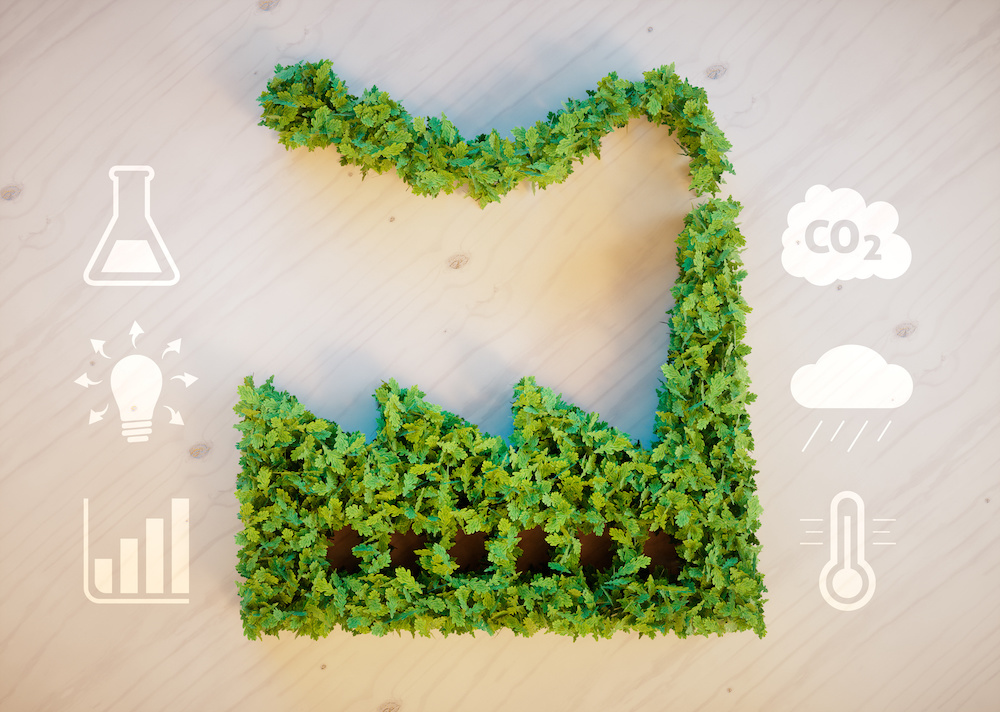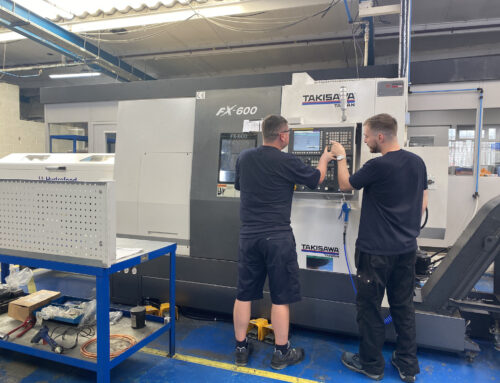Harris RCS has used funding from the Coventry and Warwickshire Green Business Programme to reduce carbon emissions and boost the bottom line. The first tranche of grant support has helped the manufacturer to save 31 tonnes of CO2 and the latest energy-saving initiatives are further driving the sustainability agenda. The projects, ranging from installing new lighting to improving the energy efficient of the building, have delivered a host of environmental and business benefits, reducing utility bills and improving the working environment.
We are in the midst of a climate emergency, and we all need to play our part in helping the UK meet its Net Zero 2050 target. Around one third of energy consumption is attributable to the manufacturing sector and by driving efficiencies, companies can have a significant impact on greenhouse gas emissions. Harris RCS is committed to finding more sustainable ways of working and has made full use of the Coventry and Warwickshire Green Business Programme to deliver £90,000-worth of carbon-cutting projects.
Grant Support
Delivered by Coventry City Council, CUE Business Solutions and Coventry University, the Green Business Programme is part funded through the European Regional Development Fund. Aimed at SMEs, it offers a range of support for companies improve energy and resource efficiency and is designed to cut regional greenhouse emissions by more than 4,000 metric tonnes.
Harris RCS first engaged with the programme back in 2018 to learn more about low carbon technologies and what benefits they could bring to the business. The team carried out one-to-one diagnostics to identify opportunities and awarded the SME two grants of 30% and 40% to deliver 6 separate projects, the last of which was completed in February 2021.
Harris RCS Managing Director, Graham Harris, said: “We are a manufacturing business operating in the aerospace sector but once we started talking to the Green Growth Programme, we understood that we can all play our part in reducing emissions and small changes can make a real difference. The first programme of projects saved 31 tonnes of CO2 emissions and has encouraged us to keep progressing on our sustainability journey.”
Improving energy efficiency
The first £30,000 project attracted 30% funding from the Green Business Programme. Much of the money was spent on the construction of an internal wall to allow for better insulation and the replacement of all external doors with insulated alternatives.
According to The Carbon Trust, typically two thirds of the heat generated in a building is lost through the building fabric. Reheating the space to balance this loss wastes a significant amount of energy. Harris RCS used some its second round of funding to install internal aluminium insulated cladding to external walls to help retain as much heat as possible.
Lighting
Lighting uses around 20% of the electricity generated in the UK and there is significant potential for households and businesses alike to move to low-energy sources. According to The Carbon Trust, upgrading from conventional lighting to LED technology can achieve energy savings of up to 80%.
As part of its first green improvement project, Harris RCS installed LED lighting
throughout the premises, including several motion sensors. The amount of energy required has been drastically reduced, whilst the quality of light throughout the factory is much improved.
Compressed air
Compressed air is around eight times more expensive than electricity and leaks are very costly. For businesses like Harris RCS, improving compression efficiency and reducing leakage can have a major impact both on utility bills and carbon emissions. The manufacturer took the opportunity to invest in a new air compressor and to replace all flexible air lines with aluminium pipes to prevent leakage.
Business benefits
Harris RCS has already seen significant business benefits from its programme of green improvements. The initial funding project, completed in September 2018, has already led to significant monetary and carbon savings. The company no longer needs to turn the heating on except in the depths of winter and driving down utility costs has a direct impact on profitability.
In addition, there are the less quantifiable impacts on health and wellbeing. Graham explains: “The green investment programme has been widely welcomed by the workforce. It’s really improved the working environment. It’s not nearly as cold now in the winter and the lighting creates a far better aesthetic. It is a more pleasant place to work as well as a more sustainable one and we will keep exploring new ways of improving our environmental credentials.”
Harris RCS is now focusing its attention on persuading more of its supply chain to use returnable packaging. The manufacturer has already had a set of returnable packaging made to measure and is engaging with stakeholders from customers to tool suppliers to get on board.
At the same time, the company is striving towards its next green goal of becoming a paperless facility. The plan is to adapt machines and processes to create and store all information in a digital form and is exploring the potential for receiving support through the MTC (Manufacturing Technology Centre) and its Manufacturing Growth Programme.





Stay In Touch